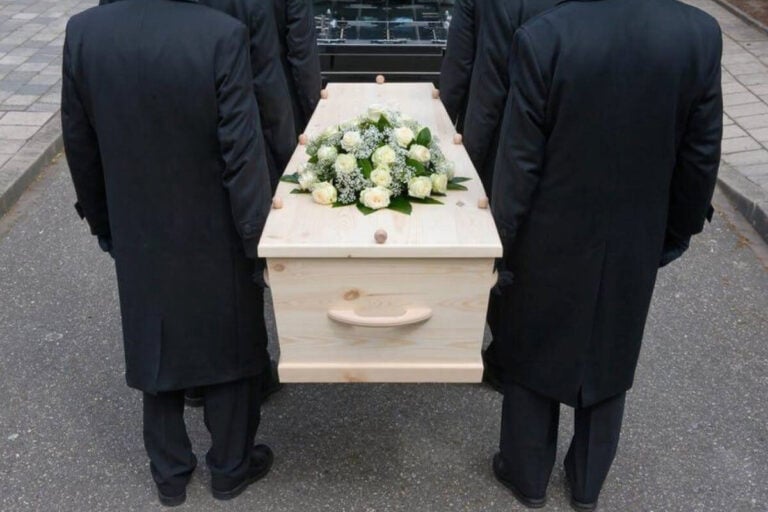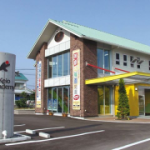
When you first move to Japan, it might seem like everyone is in the same industry as you. But as you start to expand your network and meet more international residents, you’ll realize that people work a huge array of professions, some that you might not have even thought of back home. In fact, here it can even be easier to meet people in industries completely different to yours at expat gatherings and international events.
But there is one profession that you aren’t so likely to come across, and that’s an international embalmer and funeral director. That is, unless you happen to meet Robert Hoey. With embalming schools opening up in Japan, it has become more difficult for international workers to get into the profession, making it a rare find. But Robert Hoey has been working in Japan as an embalmer since 1993, and has never looked back.
Drawn to Compassion
It is probably not surprising to know that Robert hadn’t dreamt of becoming a funeral director as a child. When he was in high school, he was intending to study architecture. But a friend was doing work observation at a local funeral home, and after talking about everything they were doing, Robert decided to visit for himself.
“The people there were so caring and dedicated to their jobs, I felt that this was the place for me. Of course, it seemed a bit scary at first but when you really get to see what they do behind the scenes, it’s fascinating.”
Robert had been drawn in to the industry by its compassionate nature, and began his career in the funeral industry in Canada. He hadn’t considered visiting or living in Japan until 1993, when he came across an advertisement for a job as an embalmer here.
Robert had always loved travel and the idea of working abroad, so he went for the interview and got the job. He took a 3-year leave from the company that soon turned into much longer: “I fell in love with Japan and never returned to my job in Canada.”

No Japanese Embalmers
When Robert first came to Japan, there were no Japanese embalmers, and the only embalmers in the country were from North America. This made it easier for Robert to land the position, even without any Japanese ability. The company he joined had translators, and took care of any issues, so life was easy. Since then, an embalming school has opened up in Japan so it’s much more difficult for an embalmer from abroad to find a job here.
Of course, living in Japan for an extended period of time, Robert wanted to communicate with his Japanese friends more easily, so started going to Japanese classes a few times a week. He still feels that he hasn’t reached an advanced business level, but is able to get by with the help and understanding of his staff.
Starting a Funeral Company
Robert had been doing embalming in Japan for 24 years when he decided to start his own funeral company: “It wasn’t easy to give up a stable job, however, I wanted to follow my dream of owning my own company.”
Robert faced a tough time ahead, as he was working around the clock with his limited staff. He recalls a time when he was in the middle of embalming when he got a call asking him to pick up a body at 2am: “My staff were not in until the morning so I jumped in our vehicle and drove to the family home to meet the funeral director there and transfer the body back to my facility. Many people don’t realize it but we work 24 hours a day, 365 days a year.”
Middle-of-the-night calls are not infrequent, either. The company has a dedicated phone line for English speakers, so it’s not unheard of to get a call in the middle of the night from across the world to deal with a death in Japan.
The Only Covid-19 Embalmer in Japan
The company, Funeral Support Services Co. Ltd., has now expanded, so Robert doesn’t need to work 24/7. With that expansion they now do international repatriations, funerals, and cremations as well as embalming for the expat community.
They are also the only embalming company in the country that will provide the service for Covid-19 deaths. In Japan, when a death occurs from Covid-19, the norm is to directly cremate the body, which means the family is unable to say their final farewells.
But Robert’s company is experienced in dealing with contagious diseases, so their embalming services allow loved ones to properly say good-bye. Robert said, “To be able to do this for a family going through the most difficult time in their lives gives me great satisfaction.”
The Emotional Challenges
Robert told me there have been several cases where other funeral companies had turned away families when Covid-19 was the cause of death. In one such case, a man’s wife had caught the coronavirus, and he expected her to get better and be released. But after five weeks isolated in hospital, she didn’t make it. He hadn’t seen his wife in over a month, and if it were up to cremation, he would never have seen her again. Robert says “He needed to see her and we made that possible.”
In another heart-breaking case, an entire family caught Covid-19 and their 5-year-old daughter passed away. Everyone had to wait until they had recovered to give her a proper funeral, so embalming allowed them to do so.
Understandably, the job can be very tough emotionally, so sometimes Robert takes a step back to travel and take some time for himself or to connect with the community. He says “I often visit our colleagues in other countries in order to build strong bonds with them. It makes it easier when the death of a foreigner in Japan occurs. I know who to contact in their native country.”
Different Cultures
Robert had been a funeral director in Canada for five years before moving to Japan, but with Canada’s mix of cultures and international residents he was fairly used to accommodating for different requests.
Robert says that “Funerals in Japan are usually Shinto or Buddhist and they have an otsuya which is similar to the wake or visitation that we have in Canada.” But no matter whether the family is Japanese or international, the company is able to support any cultural requests a family might have. Rarer still, they can provide burial services in Japan “where 99% of the people are cremated”.
Overall, Robert has a caring and curious take on his profession, saying “it’s more interesting than it is challenging when it comes to providing a meaningful funeral for a family.”
While funeral directing may not be your dream job in Japan, Robert’s story goes to show that there are no limits to what you can do here. So Robert leaves us today with some sound advice: “Follow your dream and never give up. It takes a lot of patience and perseverance.”
Author: Cassie Lord















